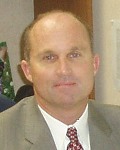Ed.D. in Educational Administration & Leadership, 2010
School of Education
September 1, 2011
Principal is committed to educational opportunities and college attendance for all students.
Dr. Preston Perez is a native Californian whose post-secondary educational journey began at California State University, Fullerton, where he obtained a Bachelor of Arts Degree in Psychology, a Master’s Degree in Education, a Multiple-Subject Teaching Credential, and an Administrative Services Credential. In 2005, Dr. Perez entered the CSU/UCI Joint Ed.D. program and subsequently received his doctorate in Educational Administration and Leadership, with an emphasis in K-12 Instructional Leadership.
Dr. Perez began his teaching career in the Ocean View School District in Huntington Beach and transitioned into educational administration as an assistant principal for the Buena Park School District. Dr. Perez currently is serving as the principal of Canyon Lake Middle School in the Lake Elsinore Unified School District.
As an educator and administrator for the past 15 years, Dr. Perez became increasingly more concerned with the plight of Hispanic students in the California public school system. His unrest regarding the high drop out rates for Hispanic students drove him to investigate the phenomenon, and he conducted a multiple case study that examined the disproportionate occurrence of low academic achievement and dropping out among high school Hispanic Youth.
Dr. Perez will be volunteering this fall as a mentor for the Puente Program at Mt. San Jacinto College.
The Puente Project is a national award-winning program that for more than 25 years has improved the college-going rate of tens of thousands of California’s educationally underrepresented students. Its mission is to increase the number of educationally disadvantaged students who enroll in four-year colleges and universities and earn college degrees.
Promoting inclusive opportunities for all students has been a consistent theme guiding Dr. Perez’s professional activities and personal commitments. As he explains,
When an educationally disadvantaged student is assisted in obtaining the resources and support necessary to enter college and earn a degree, it doesn’t just change his/her life — it has the potential to change generations!
